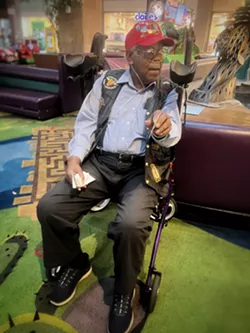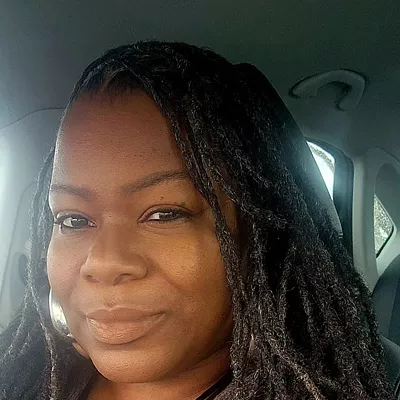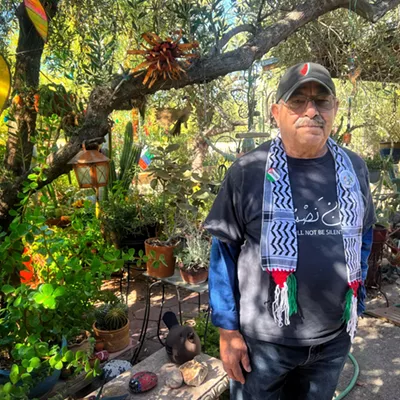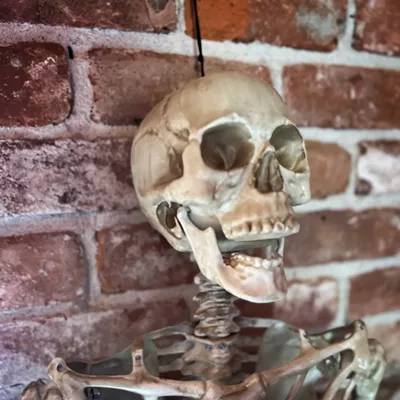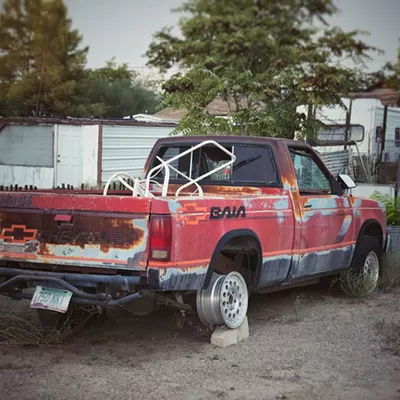A coyote darted out in front of us and sort of stood in the road there staring right at me, in my headlights, on a still, moonless night. The light reflected back to me through her eyes. I swerved to avoid her, and the curb rushed hard and the airbag deployed. Sirens arrived, several sheriffs, an ambulance, tow truck, but nothing to see here, our broken car, a mangled guardrail, my small daughters, Rickie Rose and Zuzu, ages five and three respectively, frightened in my arms and each with a bump on their forehead. My heart scudded, I think only of my children, and to get them home to their mother and siblings as soon as possible. Their mother protects us, creates wellbeing. One of her gifts. I cry myself to sleep that night. Two days later, the girls, all swirls in pinks, blues and tutus, aced their dance recital in front of a packed house in a local school auditorium, alongside their older sibling Reece. Again, the wet cheeks.
That coyote wouldn’t leave my head. I’ve heard and read up on coyote stuff since I was a kid, and maybe the folklore took root. Some Native stories tell how the coyote isn’t just an animal—it’s an ancient spirit, a five-fingered being, tied to us in ways we barely understand — a divinatory thing and a plucky bandit, a warrior, a sage, or a guide, a spirit between worlds. It leaves signs in the dust, taunting you to move forward or warning you to turn back. To kill one is tearing into something primal, something sacred, a wound you can’t undo.
From limited interactions with coyotes over the years, I could sense their weighty presence, eyes glowing with an untouchable knowing, behind the setting lives a good story or a bad omen.
Open grills wafting fresh sizzles as the sun cuts through old-growth trees on a day threatening rain. Nearby, an elderly white woman in a wheelchair rests a few feet from a tense Latino man, his face entirely framed by serpentine tattoos. The contrasting air between them disappears when his toddler son, chasing a sibling, nearly crashes into her. Her gentle laugh and the father’s effusive apology seal it.
It is Tucson’s MLK Day celebration at Tucson’s sprawling Reid Park. This year, Trump’s inauguration fell on the same day as the Martin Luther King Jr. federal holiday. Centered around the park’s bandshell and the theme “Mission Possible: Protecting Freedom, Justice, and Democracy in the Spirit of Nonviolence 365,” American families and people, hundreds of them, from all walks of life and marginalized communities — Muslims and Jews, Natives and Latinos, Blacks and whites, Asians, LGBTQIA+ folks and others — gather among retail and community booths supporting various causes, populating the grass on the chilly morning.
I arrive at the park to Rickie and Zuzu opening chairs, helping their mom set up a booth to “promote peace and justice” in the world. Rickie has been learning Dr. King’s messages, through books at home and in pre-school. My wife hasn’t missed a single MLK day since she was 13. It’s huge in our family to honor MLK, and that’s because of Maggie. He’s a hero of hers.
A woman from the African American Democratic Caucus of Tucson hand Rickie and Zuze each a small stuffed animal. The girls then asked questions based on what the articulate emcee Carl Bedford was orating from the stage, before they ran off to the adjacent playground to join other children here for the celebration. Along with some sweetened popcorn, lemonade, and their uninhibited dancing to the live gospel and pop-jazz, their morning is magic.
For me, it was the warmth and an attendant sense of amity and energy — that which eternally lifts when hundreds gather to reflect and foster community. In the spirit of Dr. King’s life, it is an unjaded air of shared hope tinged in sadness and joy. I get to watch my wife, Maggie, and our twin babies in their stroller return within the pageantry, the commemorative march around the park. (It was the first MLK march for the babies). Among the marchers, placards and song revered MLK Jr., his legacy, and vision — all held up to the light.
Nothing good lasts—enter a bad omen. On the very day to honor King’s dream, Trump, of course, steps again into power, embodying the very nightmares against which King died fighting.
Just after MLK Day, Trump “honors” the reverend doctor by ordering the Justice Department to suspend civil rights litigation and smother police reform. The chief racist plans to disembowel the Justice Department’s Civil Rights Division — which enforces laws that proscribe discrimination. It’s greenlighting injustice and racism to spread unchecked. As MLK once said, “We need leaders not in love with money but in love with justice. Not in love with publicity but in love with humanity.”
Later still on MLK Day, I meet a guy at an indoor playground at a local mall. George Hurd, an African-American Nam vet. He was disabled in said war and is parked in the playground entrance in his wheelchair. Round, sweet face, eyes to match. Black trousers and shoes, blue button-down shirt, leather vest boasts Vietnam war patches, including a Voodoo One-O-Wonder, over his right side. That one signifies the F-101 Voodoo supersonic jet fighter, which served the United States Air Force. He is holding a little paper bag, the kind they give you at banks, filled of crisp two-dollar bills. This holiday also happens to be George’s birthday.
He begins to hand out the bills to the children in the playground. The dozen or more kids gather around, the oldest maybe 10, one toddler wears a tiny MLK t-shirt. “He’s like Santa,” another says. They ask him questions like, “how old are you?” and “why are you giving your money away?” He is 81. And he says, “I’ve been fortunate, so I’m giving a something back.”
He looks to me, adds, “so I give away money to kids.”
My daughter Rickie Rose gleefully accepts a bill from his hand. “You don’t see those around, so don’t spend it, maybe put it on your wall,” he tells her. She lifts the bill up and stares at it in the lights. She asks me if she can keep it. She can.
Zuzu is next in line. “Here you go,” he says. She runs in circles, her laughter constant, flapping the bill in her hand. George looks up at me again, and says, “that makes it worth it.” He’s talking of the joy, and, maybe, that all will be well. His work here certainly flies in the face of Trump greed.
On the drive home that evening we see another coyote, this one in our neighborhood. Rickie and Zuzu point her out. Zuzu says, “don’t crash!” We watch the coyote stop before setting a foot on the street, and then she bolts back, straight into the desert.
Ethiopian Opals and Gems by Huruy Zerzghi
WHEN: 10 a.m. to 6 p.m. Jan. 30 through Feb. 11
WHERE: Booth ME 640, Ramada by Wyndham Tucson, 777 W. Cushing Street, Tucson
PRICE: Free admission
INFO: visittucson.org

